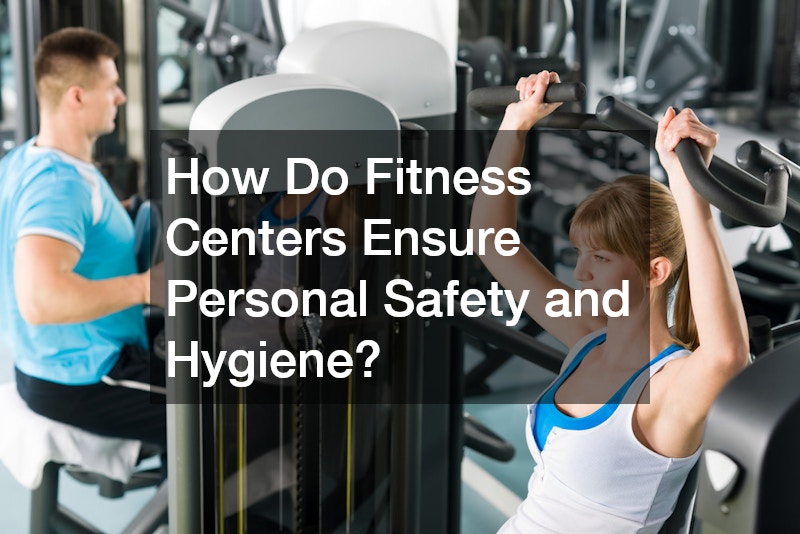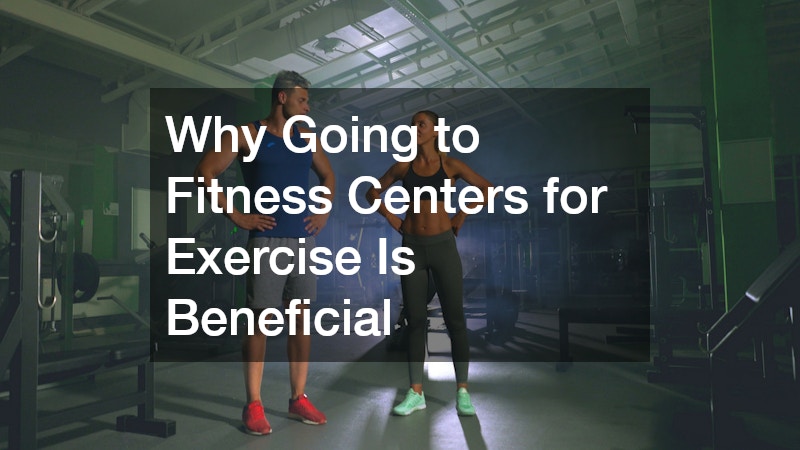Why Going to Fitness Centers for Exercise Is Beneficial

Fitness centers have become more than just places to work out—they serve as wellness hubs that promote physical, mental, and social well-being. With access to advanced equipment, structured routines, and supportive communities, fitness centers help individuals achieve their health goals more effectively. Whether you’re a beginner or an experienced athlete, joining a fitness center can provide numerous advantages that extend beyond physical fitness.
How Do Fitness Centers Contribute to Physical Health?
Access to Professional Equipment
One of the most significant benefits of fitness centers is access to a wide range of professional-grade equipment. From treadmills and elliptical machines to free weights and resistance bands, members can tailor their workouts to meet personal fitness goals.
Unlike at-home setups, fitness centers continually update and maintain their machines to ensure they are safe and effective. The availability of diverse equipment allows members to perform full-body workouts that target strength, endurance, flexibility, and cardiovascular health.
Structured Workout Environment
Fitness centers provide a structured environment that encourages consistency and discipline. Scheduled classes, designated workout areas, and the presence of trainers help create an atmosphere focused on achieving results. This structure can be particularly motivating for individuals who struggle to maintain regular exercise routines at home. The environment naturally promotes accountability—whether through personal trainers or workout partners—which helps members stay committed to their health and fitness objectives.
What Role Do Fitness Centers Play in Mental Well-Being?
Stress Reduction and Mental Clarity
Exercise is well known for its ability to reduce stress and improve mental clarity, and fitness centers provide an ideal setting to experience these benefits. Engaging in regular workouts triggers the release of endorphins, often referred to as “feel-good” hormones, which can alleviate anxiety and enhance mood. Fitness centers also serve as a mental escape from daily responsibilities, allowing members to focus entirely on themselves and their well-being. Over time, this consistent engagement can lead to improved sleep, sharper concentration, and better overall emotional balance.
Social Interaction and Community Support
Beyond the physical and mental advantages, fitness centers offer invaluable social benefits. They create a sense of community where individuals can meet others with similar goals and interests. Participating in group classes or simply sharing workout spaces can foster camaraderie and motivation. This sense of belonging can play a crucial role in sustaining long-term fitness habits, as members encourage one another to stay active and achieve their goals. The community aspect also helps reduce feelings of isolation, particularly for individuals who prefer structured social environments.
Are Fitness Centers Cost-Effective for Regular Exercise?
Cost Comparison with Home Workouts
While some may view gym memberships as an added expense, fitness centers often prove more cost-effective than building a home gym. High-quality equipment can be expensive to purchase and maintain, and home workouts may lack the diversity needed for well-rounded training. In contrast, a single gym membership grants access to a wide array of machines, classes, and expert guidance—all within one facility. Over time, the value of consistent results and reduced equipment costs makes fitness centers a practical investment for regular exercisers.
Value-Added Services and Membership Perks
Many fitness centers enhance the value of their memberships through additional perks and services. These may include access to personal trainers, nutritional consultations, steam rooms, or childcare facilities. Some gyms also offer wellness programs, fitness challenges, and recovery amenities such as saunas or massage chairs. These extras transform the gym experience from a simple workout space into a holistic wellness destination. For many members, these perks make the cost of membership worthwhile, as they contribute to a more balanced and rewarding lifestyle.
Do Fitness Centers Offer Specialized Programs and Classes?
Variety of Group Classes Available
Fitness centers are renowned for their variety of group classes that cater to all fitness levels and interests. Options often range from yoga and Pilates to high-intensity interval training (HIIT), cycling, and dance-based workouts. Group classes not only make exercising more enjoyable but also foster motivation through shared energy and accountability. They provide a structured way to learn new techniques and maintain engagement, ensuring that workouts remain both challenging and fun.
Expert-Led Specialized Training Programs
For individuals with specific fitness goals—such as weight loss, muscle gain, or athletic performance—fitness centers offer expert-led training programs. Certified trainers design these sessions to target individual needs while ensuring proper technique and safety. Whether it’s strength conditioning, rehabilitation, or sports-specific training, these programs provide members with a guided path to success. The presence of professionals helps prevent injury, maximise results, and build confidence in personal fitness journeys.
How Do Fitness Centers Ensure Personal Safety and Hygiene?
Sanitation and Health Protocols
Cleanliness and hygiene have become top priorities in fitness centers. Most facilities implement rigorous sanitation routines, including regular disinfection of equipment, locker rooms, and communal areas. Hand sanitiser stations are commonly placed throughout gyms, and many centers enforce policies requiring members to wipe down equipment after use. These practices help create a safe environment where members can focus on their workouts without concerns about hygiene or contamination.
Trained Staff for Emergency Situations
Fitness centers also prioritise member safety through trained staff and established emergency protocols. Employees are typically certified in first aid and CPR, ensuring they can respond quickly in case of medical emergencies. Automated external defibrillators (AEDs) are often available on-site, and staff are trained to use them effectively. This preparedness provides members with peace of mind, knowing that their well-being is a priority while they exercise.

